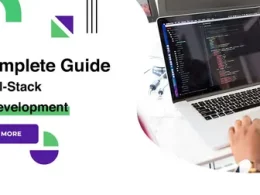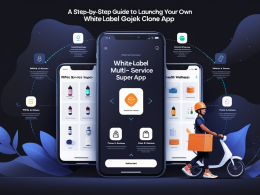Welcome to the era of technology, where everything is just a click away. However, with convenience comes certain risks that cannot be ignored. In this digital age, your online privacy is constantly at stake and can easily be compromised without you even realizing it. From hackers stealing your sensitive information to companies tracking your every move on the internet – there’s no shortage of threats lurking in cyberspace. That’s why we’ve put together this comprehensive guide to help you safeguard your personal data and understand why internet privacy matters more than ever before. So grab a cup of coffee and read on to discover how you can protect yourself from cybercrime and maintain control over your online identity!
What is internet privacy?
Internet privacy is the right to keep one’s personal information private. This right is not absolute, but it is generally recognized as an important part of individual liberty. The internet presents a number of challenges to privacy, due to the way it collects and stores data.
When we use the internet, we leave behind a digital trail of our activity. This includes the websites we visit, the searches we make, and the things we click on. This data can be collected by businesses, governments, and other organizations. It can be used for marketing purposes, or sold to third parties. It can also be used to track our movements and activities online.
The way data is collected and stored on the internet also raises concerns about its security. Hackers can access this data if it is not properly protected. This can lead to identity theft, financial fraud, and other crimes.
There are a number of ways to protect your privacy online. You can use a VPN to encrypt your data and hide your activity from your ISP. You can use a secure browser extension like Privacy Badger to block third-party tracking cookies. You can also limits the amount of personal information you share online by using apseudonym or disposable email address.
Why should you care about internet privacy?
In a world where our every move is tracked and monitored by corporations, governments, and other institutions, it’s more important than ever to be aware of internet privacy and the ways we can protect our information online.
There are a number of reasons why you should care about internet privacy, including:
1. Protection from identity theft: If your personal information falls into the wrong hands, it could be used to steal your identity. This can lead to a number of problems, including financial fraud and damage to your reputation.
2. Protection of your personal data: When you share personal information online, you have no control over how it’s used or who has access to it. This can leave you vulnerable to identity theft, data breaches, and other privacy invasions.
3. Prevention of targeted advertising: If you’re not careful about protecting your internet privacy, you may end up being targeted with unwanted advertisements. This can be annoying at best and downright intrusive at worst.
4. Maintenance of your anonymity: In some cases, you may want to keep your activities and identity anonymous online for security reasons. For example, if you’re a whistle-blower or journalist working on sensitive stories.
5. Safeguarding your freedom of expression: If you can’t express yourself freely online without fear of reprisal, then your ability to participate in public discourse is hindered. This also applies to other forms of
How to protect your information online
In the age of the internet, it’s important to be aware of how to protect your information online. With so much of our lives now lived online, there is a greater risk than ever before of our personal information being compromised. Here are some tips to help you protect your information online:
1. Use strong passwords and never reuse them. A strong password should be at least 8 characters long and contain a mix of upper and lower case letters, numbers, and symbols. Never use the same password for more than one account.
2. Be careful what you share on social media. Be mindful of the information you share on social media sites like Facebook and Twitter. Avoid sharing sensitive personal information like your home address or phone number.
3. Use privacy settings on social media sites. Most social media sites have privacy settings that allow you to control who can see your posts and profile information. Be sure to use these settings to limit access to only those people who you want to be able to see your information.
4. Shopping online? Use a credit card instead of a debit card. When shopping online, it’s best to use a credit card instead of a debit card. This is because credit cards offer better protection against fraud than debit cards do. If you do use a debit card, be sure to monitor your bank account closely for any unauthorized charges.
5 Keep your software up-to-date . One way that hackers can gain access to your personal
The dangers of not protecting your information online
In a world where we increasingly rely on the internet for everything from communication to entertainment to work, it’s more important than ever to be aware of the risks to our privacy and take steps to protect ourselves online. Here are just a few of the dangers of not protecting your information online:
Identity theft: One of the most common risks of not protecting your information online is identity theft. If criminals are able to access your personal information, they can use it to open new accounts, make purchases in your name, and even commit crimes.
Fraud: Another risk of not protecting your information online is fraud. This can take many forms, from phishing scams that trick you into giving away personal information, to fake websites that collect your credit card details.
malware: If you’re not careful about what you click on and download while browsing the web, you could end up inadvertently downloading malware onto your computer or device. This malicious software can then be used to steal your personal information or even hijack your system for nefarious purposes.
Data breaches: Finally, another danger of not protecting your information online is that companies and organizations whose systems contain our personal data can be subject to data breaches. These breaches can occur through cyber attacks or simple carelessness, and they can result in our sensitive information falling into the wrong hands.
Conclusion
Taking the time to understand why internet privacy is important and making an effort to protect your personal information online is becoming increasingly necessary in today’s digital world. With just a few simple steps, you can greatly reduce the chances of your data being compromised or misused. We hope this guide has given you some ideas on how you can go about safeguarding yourself and your data online, so that you can enjoy all of the benefits of modern technology without worrying about potential risks.












